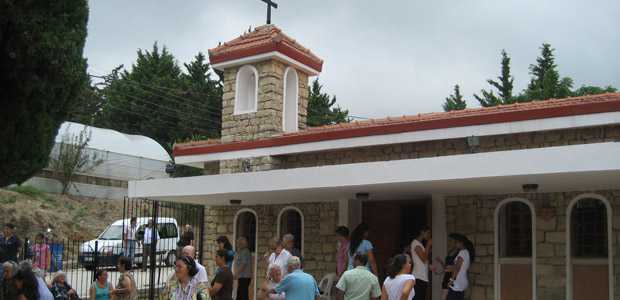Shahin Abbasov 23/03/09
According to a diplomatic source, the United States is reportedly conducting talks with Turkmenistan and Uzbekistan about opening up bases in the two Central Asian countries.
After Kyrgyzstan’s decision in February to evict US forces from an air base at Manas, US officials sent out feelers to Ashgabat and Tashkent about setting up a military presence on Turkmen and Uzbek territory, the diplomatic source claimed. [For background see the Eurasia Insight archive]1.
The source indicated that an agreement between US and Uzbek officials could be reached soon that would allow American forces to return to the Karshi-Khanabad (K2) air base. Uzbekistan evicted US forces from the base in late 2005 amid bilateral rancor over the Andijan events in May of that year.
Since Kyrgyzstan formally initiated the Manas base closure process, US defense officials have maintained that a base in Central Asia is not absolutely necessary for maintaining the existing level of support for ongoing military operations in Afghanistan. While many regional analysts have said it would be logical for Washington to explore the possibility of regaining access to K2 in Uzbekistan, there has been no official confirmation either coming out of Washington or Tashkent that any such discussions have occurred.
Indeed, US diplomats in recent weeks have publicly denied any knowledge of talks between the governments of the United States and Uzbekistan on a possible base deal. In a March 5 interview with the Russian-language newspaper Sobytiya (Events), for example, the US ambassador to Tajikistan, Tracy Ann Jacobson, stated that she “had not heard one word from my colleagues in the Pentagon about the possibility of creating a [new] base” in Central Asia, the agency Central Asian News reported.
It would seem to be a much longer shot for the United States to secure Turkmen approval for a base in that Central Asian nation. Turkmenistan has long staked out a neutral foreign policy.
US Defense Department officials did not immediately respond to repeated telephone and email queries made by EurasiaNet seeking comment on the supposed base negotiations.
The diplomatic source, who spoke on condition of anonymity, indicated that US officials have also sounded out Azerbaijan President Ilham Aliyev’s administration about the possibility of establishing a military base there. The clear US preference, however, is to find a facility that is closer to Afghanistan. “It would be more logical and efficient for a military operation in Afghanistan to have bases in Central Asia, but not in the South Caucasus,” the source said.
Beyond the military base matter, US officials are interested in securing wider Turkmen and Uzbek participation in a network to expand the flow of non-lethal supplies into Afghanistan. [For background see the Eurasia Insight archive]. Ashgabat and Tashkent could play important roles in building a supply route running from Turkey to the Georgian Black Sea port of Poti, then by rail to Azerbaijan (Baku), and across the Caspian Sea. Both the Turkmen port of Turkmenbashi and the Kazakhstani port of Atyrau have been mentioned for the route’s next stage. Cargo would then move on to Uzbekistan and, finally, Afghanistan. Tajikistan, which borders on Afghanistan, has also been discussed as a storage point.
Transportation specialists, government officials and private companies from Turkey, Azerbaijan and Georgia, as well as US officials, gathered in Baku on March 9-10 for a US-sponsored conference on ways to integrate Azerbaijan into supply networks to Afghanistan. A March 9 statement from the US Embassy in Baku specified that cargo from Azerbaijan would be non-military and carried by private companies. Military personnel would not be involved in the transit, according to the embassy statement. [For background see the Eurasia Insight archive].
A source in the Azerbaijani government who did not want to be named termed the conference productive for Azerbaijan. “The Americans offered to set up the necessary infrastructure in Azerbaijan [for storage], as well as to contract transportation companies and local businesses which would purchase the necessary goods and products [for troops in Afghanistan],” the source told EurasiaNet.
Former presidential foreign policy aide Vafa Guluzade, though, sees an eventual military component in the discussions as well. “Azerbaijan is situated closely to Afghanistan, Central Asia, Pakistan, Iran and Russia. Therefore, sooner or later, a US military presence in Azerbaijan is inevitable,” Guluzade said.
Not everyone agrees. Sulhaddin Akper, head of the Azerbaijan-Atlantic Cooperation Association, a Baku-based think-tank, said a base in Azerbaijan would be an inefficient way to support operations in Afghanistan, given the distance involved.
Whether or not a base is feasible in Azerbaijan, Baku is interested in helping to expand an Afghan supply route via the Caucasus. Azerbaijan already has 92 soldiers in Afghanistan as part of the US-led coalition that is combating the radical Islamic insurgency.
Azerbaijan’s willingness to strengthen strategic cooperation with the United States has made two of Baku’s neighbors — Russia and Iran — nervous. But for now, there is little that either country can do about it. Akper noted that Moscow’s ability to influence Baku has been diminished by a scandal in which the Kremlin reportedly authorized the transfer of Russian arms to Armenia. [For background see the Eurasia Insight archive].
Editor’s Note: Shahin Abbasov is a freelance correspondent based in Baku. He is also a board member of the Open Society Institute-Azerbaijan.
1 EURASIA INSIGHT
Eurasianet






